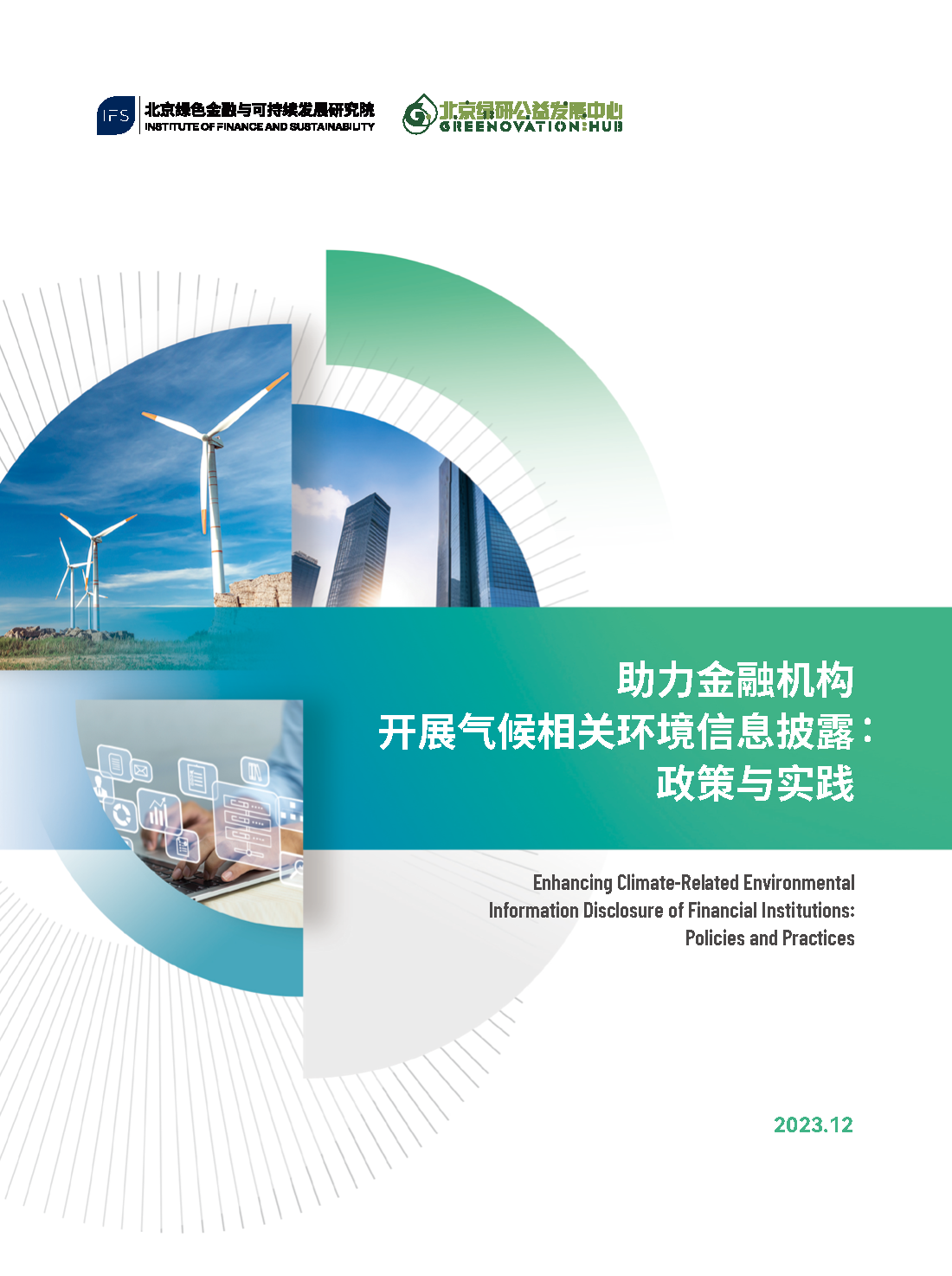Enhancing Climate-Related Environmental Information Disclosure of Financial Institutions: Policies and Practices

Release: Enhancing Climate-Related Environmental Information Disclosure of Financial Institutions: Policies and Practices
Time: December 2023
Climate change, as a global crisis, presents significant challenges to natural ecosystems and the sustainable development of human societies and economies. Firstly,climate change poses a substantial threat, exacerbating the loss of biodiversity. More than half of the world's Gross Domestic Product (GDP) moderately or highly depends on natural and ecosystem services. Moreover,climate change introduces both physical and transition risks to the operations and assets of financial institutions, thereby creating systemic risks for financial system stability. These systemic risks have drawn the attention of central banks worldwide. The Network for Greening the Financial System (NGFS), composed of central banks and regulatory authorities, released the "Overview of Environmental Risk Analysis by Financial Institutions" in 2020, encouraging financial institutions to disclose their environmental and climate-related risk exposures and risk analysis results in accordance with the recommendations of the Task Force on Climate-related Financial Disclosures (TCFD). The financial sector can play a pivotal underpinning role in addressing climate change. In 2015, the "Paris Agreement" (hereinafter referred to as the "Agreement") was adopted by over 190 signatories, setting long-term temperature control objectives and guiding investments towards low greenhouse gas emissions and climate-resilient sectors. The International Development Finance Club (IDFC) is committed to aligning its investments with the Agreement’s objective. The private sector responded proactively, with more than 450 of the world's largest banks and pension funds from 45 countries, managing assets totaling $130 trillion, announcing the establishment of the Glasgow Finance Alliance for Net Zero (GFANZ) during COP26 in November 2021. They pledged to work towards critical greenhouse gas emission reduction goals, ensuring that all assets managed by the participating institutions align with net-zero emissions7. In 2022, during the 27th Conference of the Parties (COP27) of the United Nations Framework Convention on Climate Change, the "Sharm El-Sheikh Implementation Plan" was adopted, highlighting the existing funding gap of $4 to $6 trillion for climate change action8. In 2023, the Sustainable Development Summit and the Climate Ambition Summit shed light on deviations from global sustainable development goals. There was a clear shortfall in global climate actions to align with the Nationally Determined Contributions (NDCs) goals established by individual countries. In response, United Nations Secretary-General António Guterres proposed an annual stimulus package of at least $500 billion to drive sustainable development in developing countries.



